
Ways to improve your wellbeing and accessing further support
It’s OK to not feel OK. Here are some little things you can do to keep yourself well and some useful ways to get support.
It’s OK to not feel OK. Here are some little things you can do to keep yourself well and some useful ways to get support.
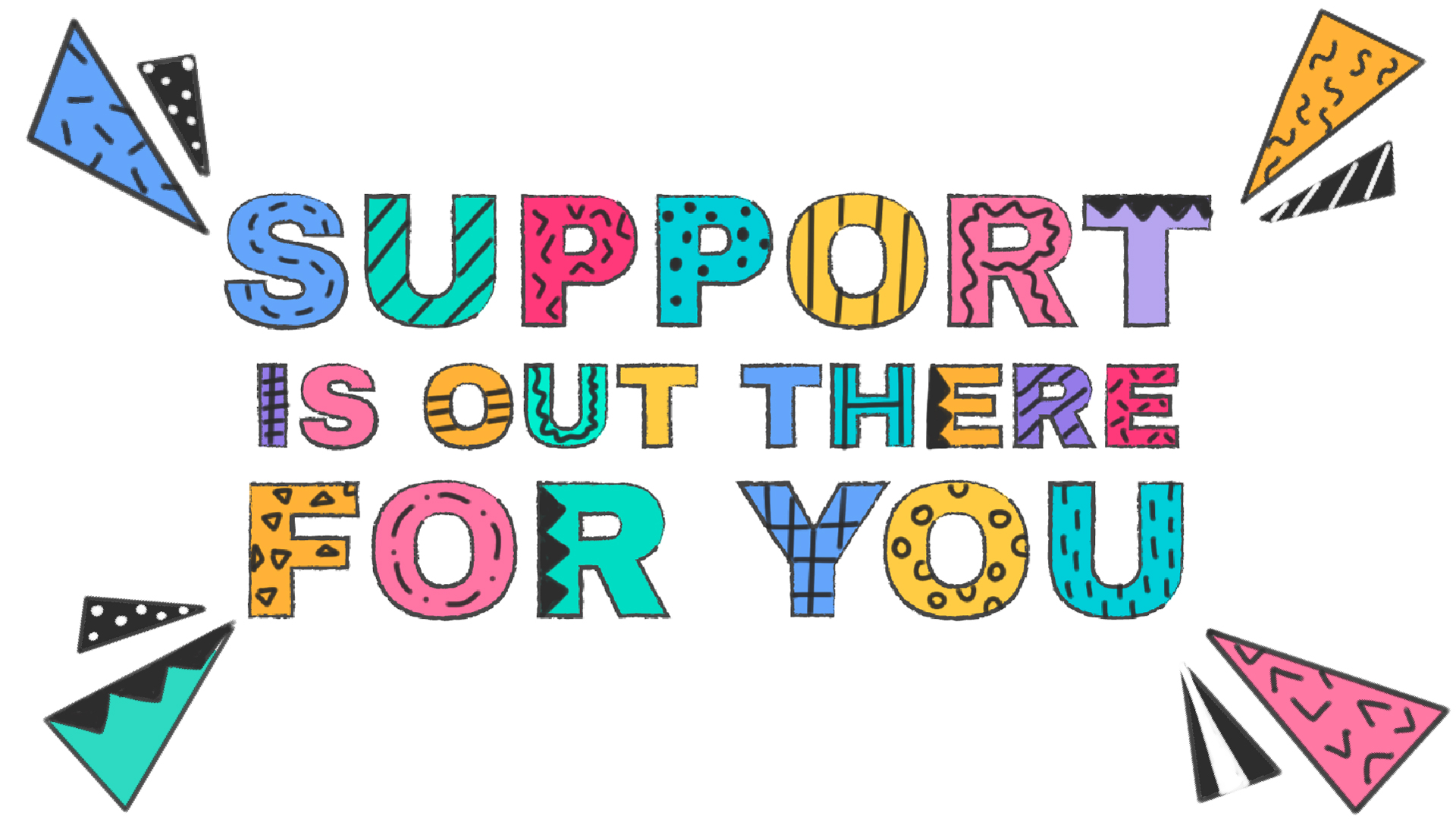
Great Mental Health Day 2023
Sharing free resources and support for Great Mental Health Day 2023
In London, there are a range of free resources, online tools, and helplines available to help you cope and stay mentally healthy. Explore these below.
You should know that even though things can feel very hard at times, support is available for whatever you are going through.
Back to Great Mental Health Day
Available support now
Free digital mental health resources
The NHS-approved digital mental wellbeing service, Good Thinking, promotes proactive self-care for the four most common mental health conditions: anxiety, low mood, sleeping difficulties and stress. Take the clinically validated self-assessment tool to get a better understanding of what you’re going through, helpful resources and if necessary, relevant treatment options.
To help build resilience and maintain good wellbeing, there’s a range of resources for everyone at Every Mind Matters. Including an interactive quiz, the Your Mind Plan, to get top tips and advice relevant for you.
Building resilience
Twenty minutes to better resilience with Dr Radha
Making small changes can make a big difference and can help you to effectively build emotional resilience.
Our ability to adapt well to the stress of life, as well as being able to bounce back from adversity, crises or trauma, is often referred to as emotional resilience.
We’ve teamed up with Dr Radha, NHS GP, broadcaster and campaigner for wellbeing, as well as Londoners like you, to develop a 20-minute training video on emotional resilience.
In this short training video, you can learn more about resilience and get lots of practical ideas and inspiration about how you can strengthen your own ability to adapt well to stressful circumstances.
British Sign Language version: We have also produced this video with British Sign Language interpretation. Watch now on our YouTube channel.
Supporting families and parents
Perinatal mental health peer support in London
Perinatal peer support is an active intervention where people use their own experiences to work directly with women/birthing people and their families.
Perinatal peer supporters or peer support workers have experienced some form of perinatal mental ill-health and recovery which they draw upon to offer a safe space, a listening ear and support to others going through similar experiences. Accessing peer support during the perinatal period has been shown to have a positive impact on women’s overall health and wellbeing.
Accessing further support
Be kind to yourself, find time to do something you enjoy
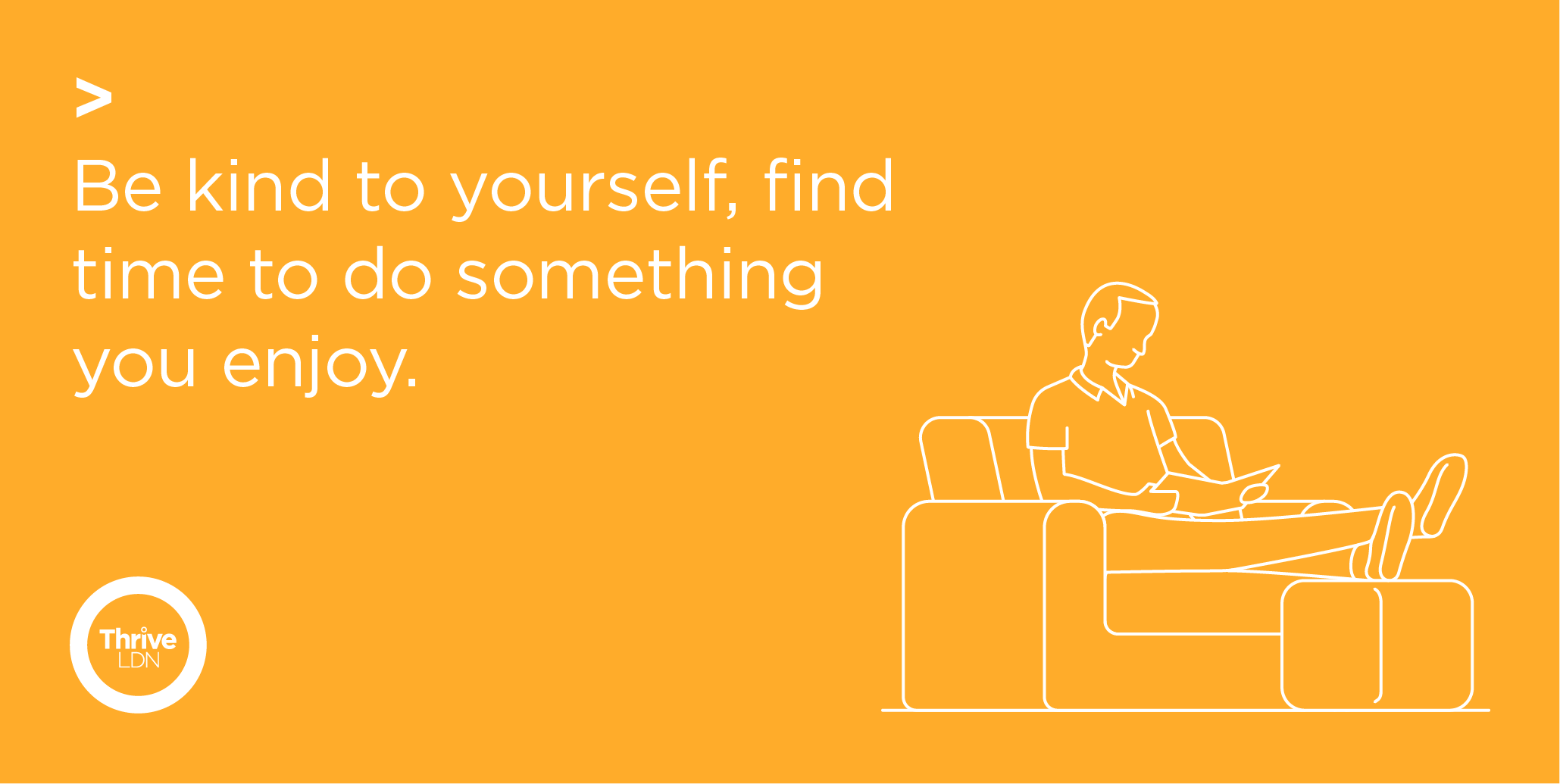
It’s OK to treat yourself to the things that make you smile and make you feel good.
Don’t be hard on yourself. Make yourself a hot drink, watch a film, read a book, or try a crossword. You may want to limit your intake of daily news as too much coverage can be overwhelming and make you stressed.
Visit Good Thinking, London’s digital wellbeing service, for free, NHS approved digital tools to help manage anxiety, low mood, sleeping difficulties or stress.
Connect with others
Connect with others, by phone, text, social media, or smile at your neighbours.
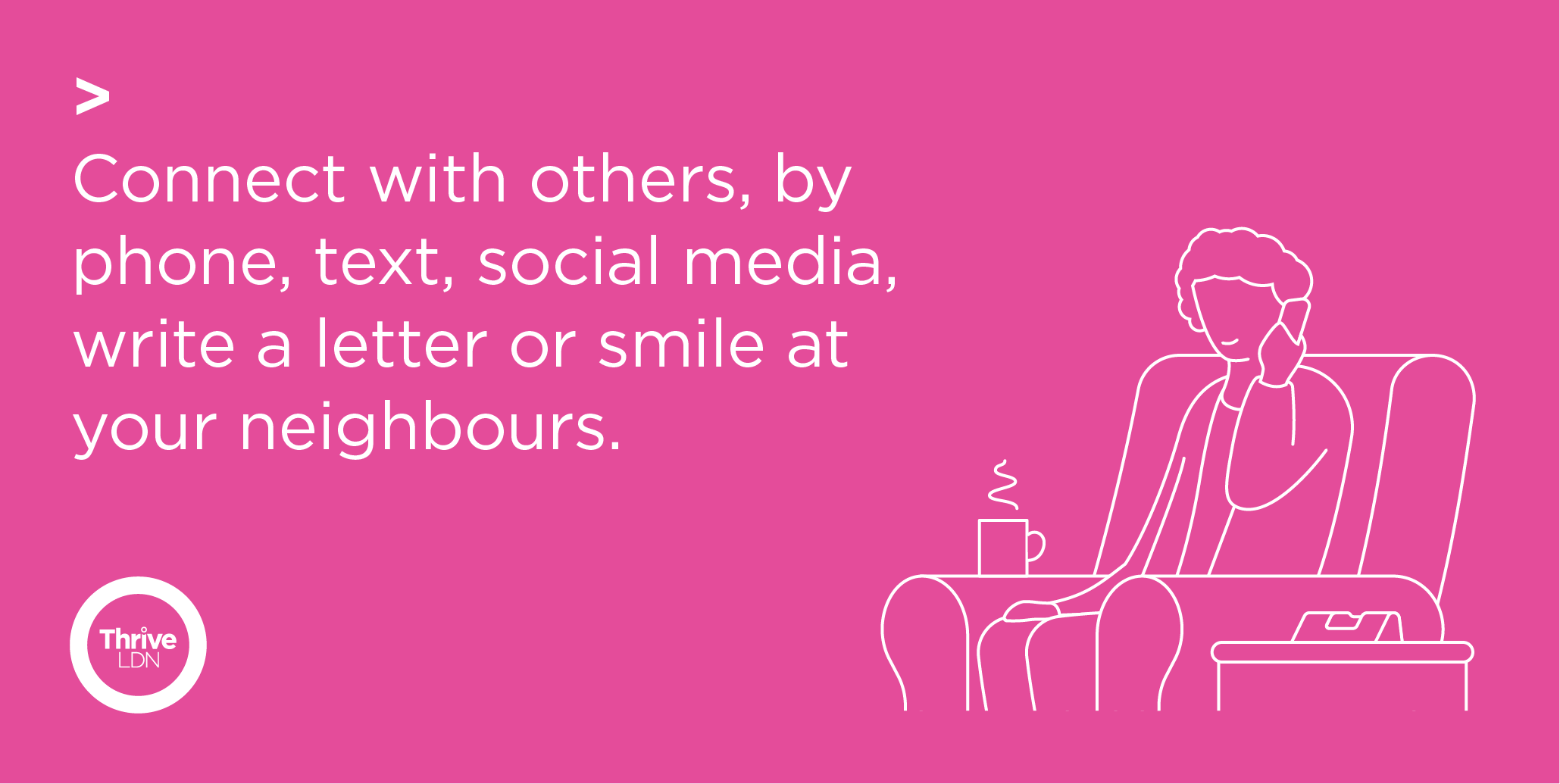
Strong, supportive relationships – whether family or with the wider community and faith groups – are one of the most important factors to help us thrive.
It’s important that we stay connected. Get in touch with family and friends to share your thoughts and have a chat.
If talking to a friendly stranger is easier, you can call Samaritans on 116 123 – a free helpline for you to talk any time you like, in your own way, about whatever’s getting to you.
Loneliness is an issue that can affect us all, young or old, at any point in our lives. NHS’ Every Mind Matters website has ideas and advice on tackling loneliness.
Staying active
Find different ways of staying active.
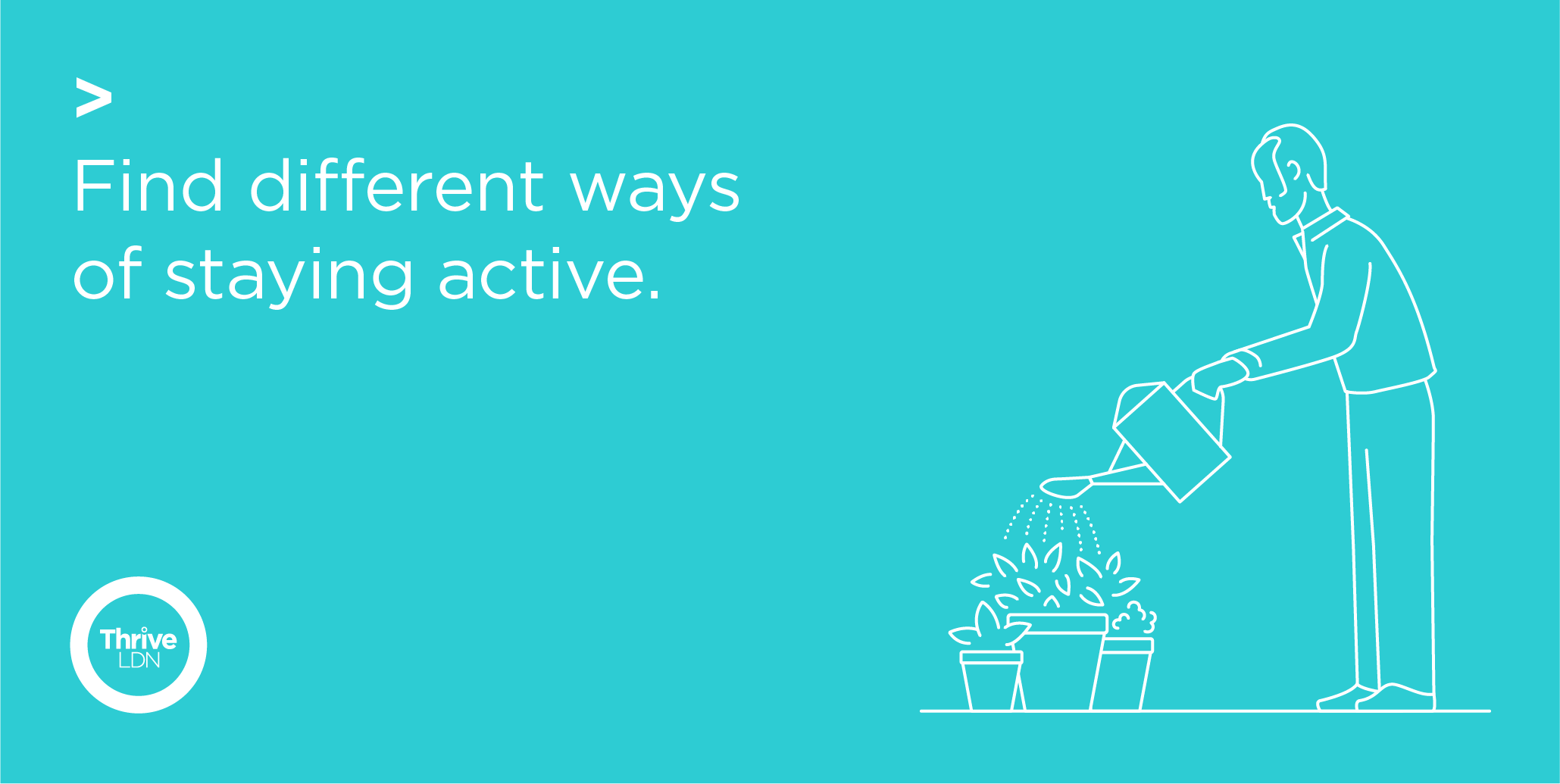
Being active reduces stress and helps us sleep better.
If you have access to a garden or you can visit your local park, then get some fresh air, go for at least a daily 20-minute walk or a run. If getting out and moving around is not easy or possible for you, keep moving about indoors as often or as much as you can.
Having an exercise routine which you can do at home or locally outdoors is really important and will help give a positive influence on our self-esteem and self-worth.
Taking up running can seem like a scary prospect, especially if you feel out of shape or unfit. You can also explore the NHS’ Couch to 5K or 10-minute workouts.
Tackling money worries
Support is available to help you manage debt and money worries.
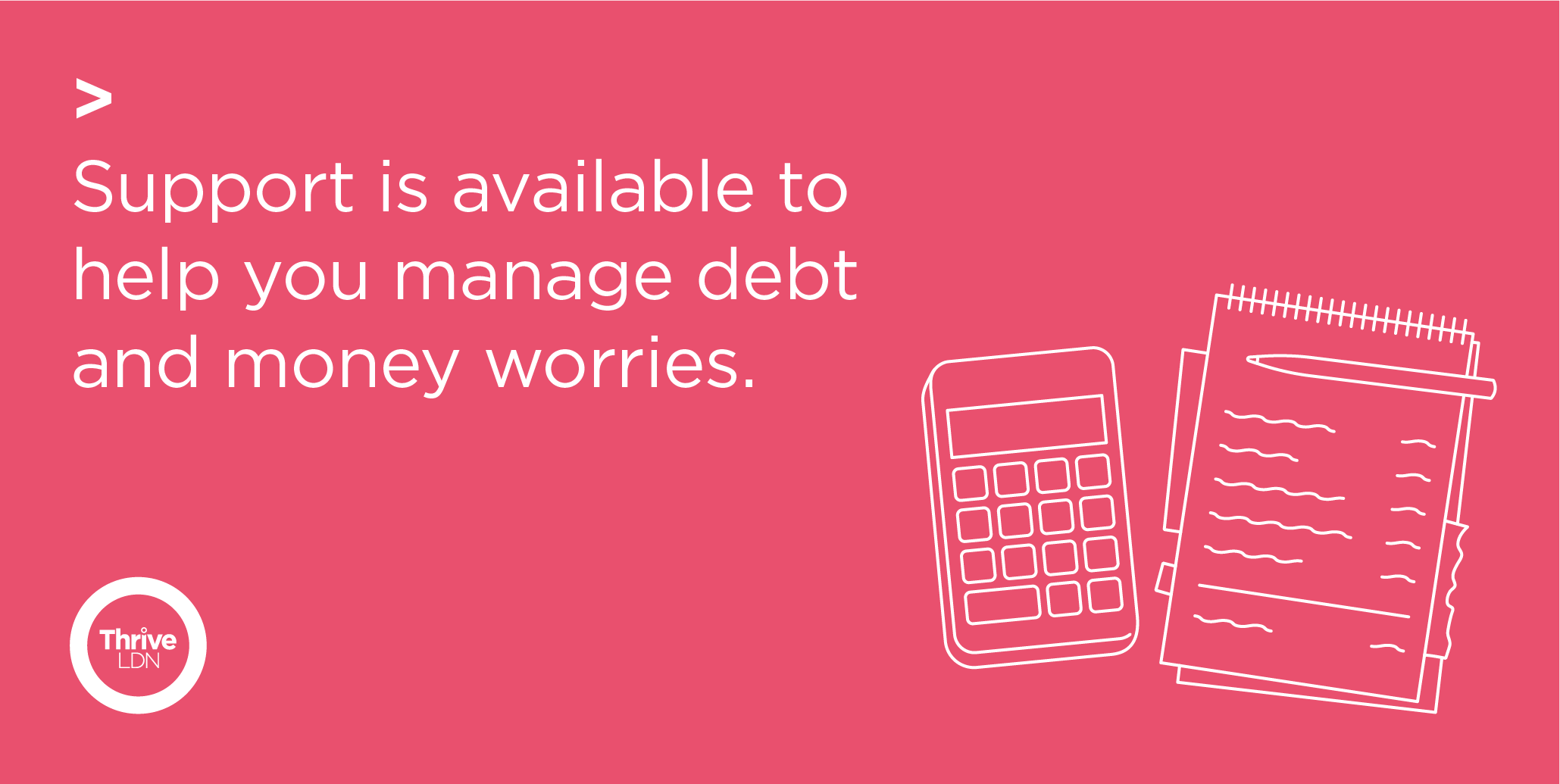
If you are worried about money or need free, impartial advice, there is support available.
Debt Free Advice: 0800 808 5700
Call or WhatsApp message for assistance on a wide range of issues, including council tax, rent arrears, utility bills and benefit overpayments. Advisors are available to help weekdays from 10am until 5pm.
Christians Against Poverty: 0800 328 0006
Advice on budgeting and debt support, regardless of your faith or background. Specialist debt help services are free and local to you.
Turn2us: 0808 802 2000
Advice with accessing crisis grants, welfare benefits and where to find debt help.
Or you can watch a Thrive LDN and the Money and Pensions Service webinar on the relationship between money and mental health, and the practical ways to get support.
Financial or personal need
Help is available if you are in personal difficulty or experiencing low income.
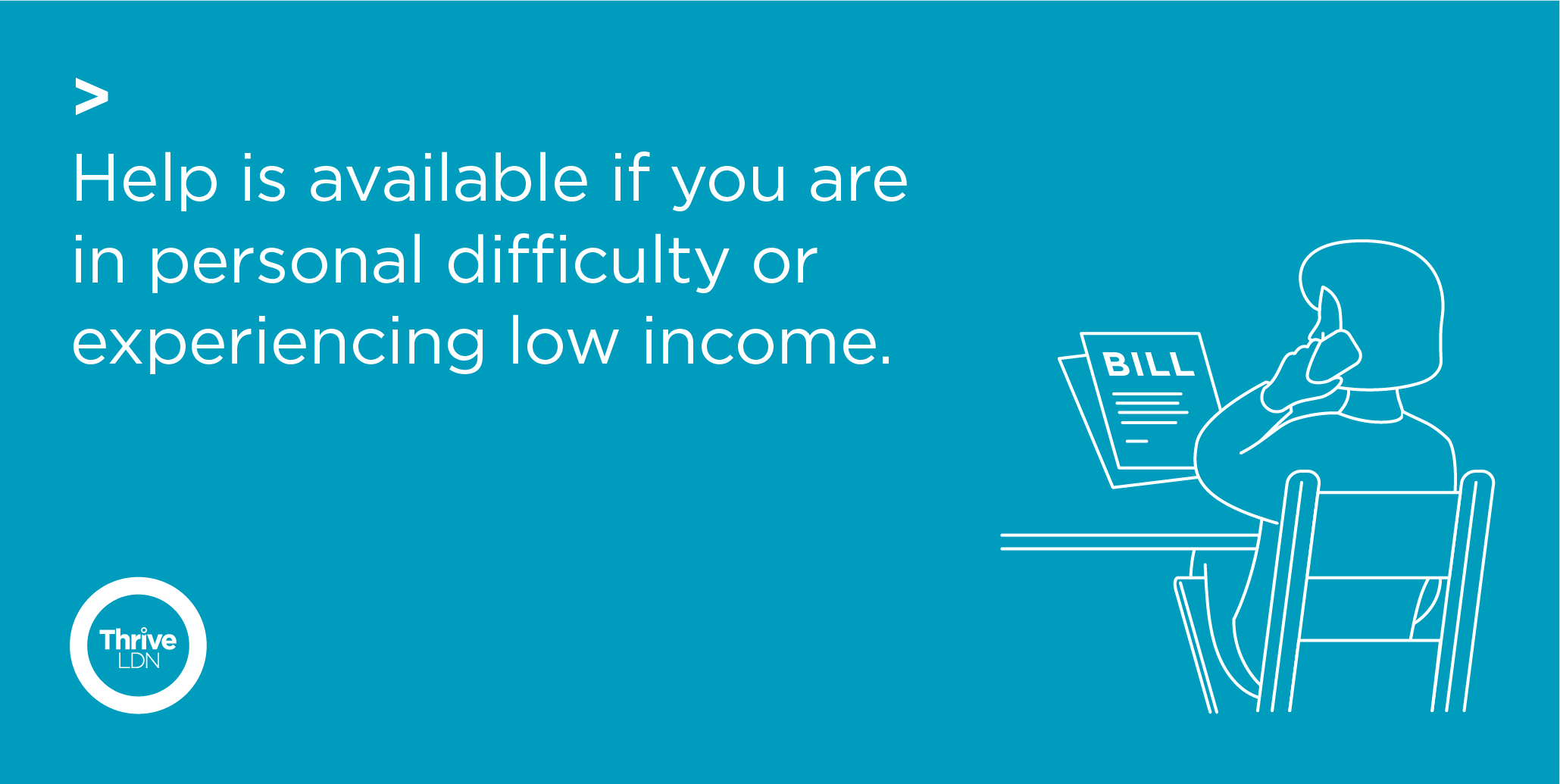
If you find yourself in urgent financial or personal need, there is support and information available for you.
Shelter: 0808 800 4444 (free helpline) or 0344 515 1540 (London helpline, charges may apply)
Advice after a sudden drop in income, including housing and household bills.
The Trussell Trust: 0808 208 2138
Advice when facing financial difficulties, as well as helping you find your local foodbank for an emergency food parcel.
There is also a range of helpful resources and guidance on City Hall’s Help with the cost of living hub if you’re feeling anxious or stressed about work, housing or personal difficulties.
24/7 urgent support
Help is available if you are not OK.
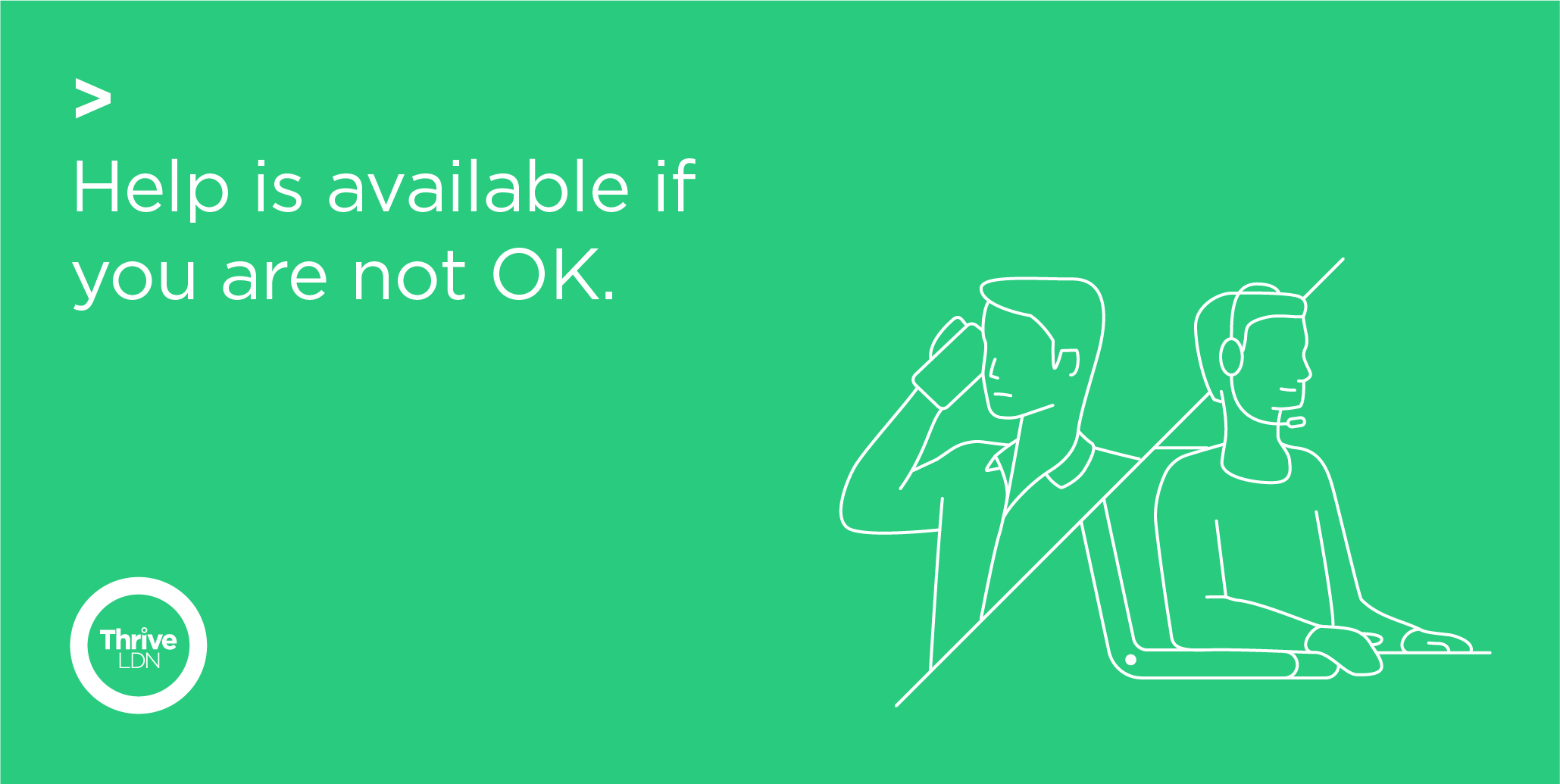
Things can feel very hard at times. Support is available for whatever you are going through, there is hope and you are not alone.
These helplines are free and confidential:
NHS urgent mental health helplines:
NHS urgent mental health helplines are for people of all ages in England. They provide 24-hour advice and support for you, your child, your parent or someone you care for. Find your local number.
Samaritans: 116 123
Whatever problems you are facing Samaritans are there to listen
SHOUT: Text Shout to 85258
Text service for support with any mental health concern (it will not show up on your bill)
Cruse Bereavement Care: 0808 808 1677
Support and advice if you are grieving or dealing with bereavement